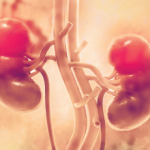Often, young adults (18–23 years old) with rheumatic illness demonstrate poor adherence to treatment regimens, lack advocacy skills and have inadequate knowledge about diagnosis and treatment.1 Patients presenting at a transition clinic are typically comfortable with having their parents continue to be centrally involved with their care, but this is a time in life when…









